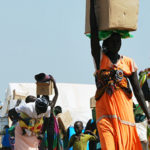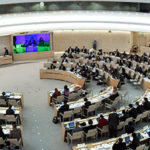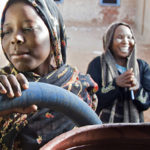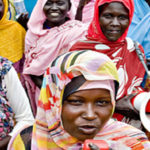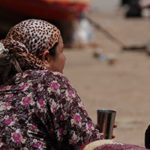Legitimacy is a crucial aspect of all power relations. Without legitimacy, power is exerted through coercion; with legitimacy, power can be exerted through voluntary or quasi-voluntary compliance. Legitimacy lies at the core of state-citizen relationships and thus of the whole state-building agenda. This Topic Guide explores the meaning of legitimacy in relation to state and ...» more
Topic Guides
Our Topic Guides aim to provide a clear, concise and objective report on findings from rigorous research on critical areas of development policy. They highlight the key debates and evidence on the topic of focus, including on approaches and lessons. They are produced in close collaboration with international experts and with practitioners in DFID.
Public sector institutional reform
The public sector is the single most important investment instrument for the state, and improving the way it is managed is critical for development outcomes including service delivery, social protection and private sector regulation. Public sector governance reform involves institutional reform – that is, changing the rules and norms that govern public sector activity. How can ...» more
Gender and conflict
What do we know about the role of gender inequality in producing or exacerbating the structural causes of violence and conflict, and about the multi-layered effects of violence and conflict on gender relations? What do we know about how to support gender equality in fragile and conflict-affected situations (FCAS)? This Topic Guide introduces the research evidence. ...» more
Human rights
This topic guide provides an introduction to the interactions and links between human rights and international development. Human rights are increasingly visible in international development language, policies and programmes. Human rights, and the principles they are based on, are argued to improve the effectiveness of development programmes. But beyond that, a human rights ...» more
Inclusive growth
Absolute poverty has fallen substantially over the last 30 years, with most of this reduction attributable to rapid economic growth in developing countries. Yet growth often does not meet the needs of the poor. Economic growth in the absence of measures to ensure the sustained equitable distribution of its benefits has frequently perpetuated the concentration of wealth in the ...» more
What is social protection?
Concepts and definitions Social protection is concerned with protecting and helping those who are poor and vulnerable, such as children, women, older people, people living with disabilities, the displaced, the unemployed, and the sick. There are ongoing debates about which interventions constitute social protection, and which category they fit under, as social protection ...» more
Design and implementation
This section provides links to key manuals, guidance and other practical resources. General manuals Devereux, S. (2008). Innovations in the Design and Delivery of Social Transfers: Lessons Learned from Malawi. IDS and Concern Worldwide. See full text Grosh, M., del Ninno, C., Tesliuc, E. & Ouerghi, A. (2008). For Protection and Promotion: The Design and Implementation ...» more
Vulnerable groups: needs and challenges
Women and girls It is often women who require social protection interventions, as they are disproportionately vulnerable due to lack of capital, high wage differentials and gendered work norms, bearing the responsibility for childcare, and exclusion from basic services. Social assistance programmes, particularly conditional cash transfers, are often aimed at women as the ...» more
Policy objectives and evidence of impacts
Social protection can have a wide range of objectives and impacts, from food security, access to services, gender equality, and state-building, to social transformation. The emphasis in developing countries has been on poverty and vulnerability reduction, and human development, for which there is good evidence. There is less evidence on longer-term developmental impacts such as ...» more
Global issues and debates
Page contents Coverage, scale and systems Financing and affordability Political economy Targeting Conditionalities Shocks and risks Fragile and conflict-affected states State-building Coverage, scale and systems The last 15 years have seen a huge increase in social protection programmes, both the number of programmes and number of countries which have ...» more
Types of social protection
Social assistance Social assistance is direct, regular and predictable cash or in-kind resources transfers to poor and vulnerable individuals or households (Arnold et al., 2011: 91). It is usually provided by the state and financed by national taxes (Barrientos, 2010). Support from donors is also important in lower income contexts. Transfers are non-contributory, i.e. the full ...» more
Tax reform
Tax reform can reduce tax evasion and avoidance, and allow for more efficient and fair tax collection that can finance public goods and services. It can make revenue levels more sustainable, and can promote future independence from foreign aid and natural resource revenues. There is increasing recognition of taxation’s role in state-building, in addition to greater ...» more
Political economy analysis
Political economy analysis (PEA) aims to situate development interventions within an understanding of the prevailing political and economic processes in society – specifically, the incentives, relationships, and distribution and contestation of power between different groups and individuals. Such an analysis can support more politically feasible and therefore more effective ...» more
Political systems
Political systems are the formal and informal political processes by which decisions are made concerning the use, production and distribution of resources in any given society. Formal political institutions can determine the process for electing leaders; the roles and responsibilities of the executive and legislature; the organisation of political representation (through ...» more
Decentralisation and local government
Estimates suggest that decentralisation is being pursued in over 80% of developing countries worldwide. For many people, local government is the part of government that most directly impacts on their lives, particularly via the provision of services like water, sanitation, and primary education and healthcare. Further resources The following resources were included in GSDRC's ...» more
Service delivery
Equitable access to essential public services is vital for human development, inclusive growth, and tackling persistent inequality. This topic guide provides an overview of the best available evidence on inclusive service delivery. It includes lessons from cases where aid has been effective at addressing weak front-line incentives, where services have been delivered in very ...» more
Inclusive institutions
Institutions are the formal and informal rules and norms that structure citizens’ rights, entitlements, opportunities and voice. How can policymakers and practitioners support inclusive institutions to promote development that ‘leaves no-one behind’? What do we know about what has – or hasn't – worked, and where? This Topic Guide synthesises the evidence, debates and approaches ...» more
Sequencing reforms in fragile states
How can governments in fragile and conflict affected states (FCAS) plan and manage reforms when everything is urgent and important, and when capacity and resources are low? How can external actors strategically support the fulfilment of essential and expected state functions? This Topic Guide provides an overview of the evidence that examines the sequencing of statebuilding and ...» more
Voice, empowerment and accountability
Voice, empowerment and accountability (VEA) interventions aim to support poor and marginalised people to build the resources, assets, and capabilities they need to exercise greater choice and control over their own development, and to hold decision-makers to account. This guide provides an overview of the best available evidence on the impact of VEA interventions. It identifies ...» more
Conflict sensitivity
Reflection among aid actors after the devastating genocide in Rwanda led to the realisation that humanitarian and development actors contributed to increasing tensions and exacerbating the conflict. Aid interventions have since been understood to become a part of the context – and in conflict settings, to become part of the conflict. This acknowledgement that aid is not neutral ...» more


